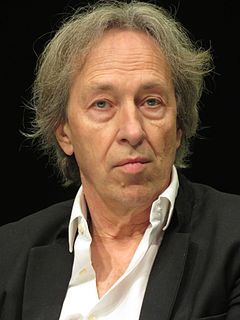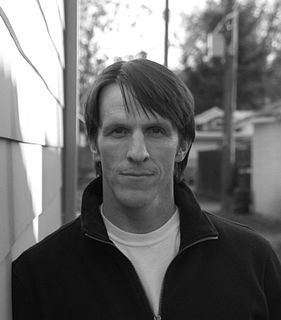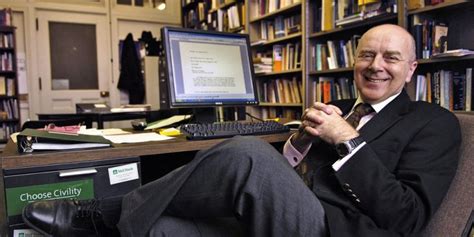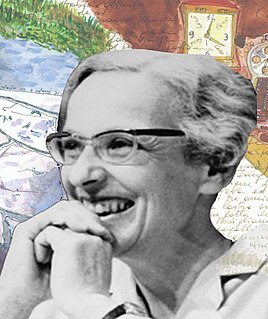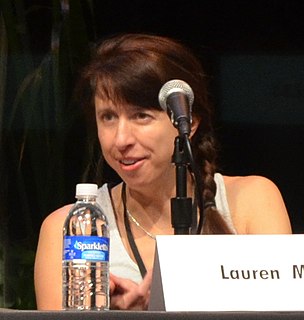A Quote by Pascal Bruckner
Ultimately, 'how's it going?' is the most futile and the most profound of questions. To answer it precisely, one would have to make a scrupulous inventory of one's psyche, considering each aspect in detail. No matter: we have to say 'fine' out of politeness and civility and change the subject, or else ruminate the question during our whole lives and reserve our reply for afterward.
Related Quotes
We can each sit and wait to die, from the very day of our births. Those of us who do not do so, choose to ask - and to answer - the two questions that define every conscious creature: What do I want? and What will I do to get it? Which are, finally, only one question: What is my will? Caine teaches us that the answer is always found within our own experience; our lives provide the structure of the question, and a properly phrased question contains its own answer.
The most profound question is, "What would I risk dying for?" The natural answer is "for my family." But for most of history, we didn't live in families. We lived in small communities that gave us our sense of safety and place in the world, so the natural answer would be "for my people." The blessing and the tragedy of modern life is that we don't need our community to survive anymore. When we lose that idea, we lose a sense of who we are.
About the only question that we would say and this is a big one in our lives that we would say you don't just use pure reason to decide the answer to is anything that affects your happiness, because then gut and reason answer very different questions. So gut tells you "How do I feel about this right now?"
No matter what is happening in our lives, we choose how we wish to think about it. And the greatest gift we give ourselves is often our willingness to change our minds. Despite what might seem to be the saddest and most intractable situation, we have the power to believe that something else is possible, that things can change, that a miracle can happen.
I put a lot of emphasis on how to treat people. The reason for this is simple. The real success of our personal lives and careers can best be measured by the relationships we have with the people most dear to us - our family, friends, and coworkers. If we fail in this aspect of our lives, no matter how vast our worldly possessions or how high on the corporate ladder we climb, we will have achieved very little.
For most affairs, this eventually becomes the most fundamental of questions, the only one that matters: Do we love each other more than the lives we already have? It is the question that hovers in the background of every secret phone call, flavors every tryst with the head of possibilities of apocalypse and renewal; and it is the answer to that question, or the lack thereof, that so often dooms an affair to failure.
Questions are not happenstance thoughts nor are questions common problems of today which one picks up from hearsay and booklearning and decks out with a gesture of profundity questions grow out of confrontation with the subject matter and the subject matter is there only where eyes are, it is in this manner that questions will be posed and all the more considering that questions that have today fallen out of fashion in the great industry of problems. One stands up for nothing more than the normal running of the industry. Philosophy interprets its corruption as the resurrection of metaphysics.
Civility means a great deal more than just being nice to one another. It is complex and encompasses learning how to connect successfully and live well with others, developing thoughtfulness, and fostering effective self-expression and communication. Civility includes courtesy, politeness, mutual respect, fairness, good manners, as well as a matter of good health. Taking an active interest in the well-being of our community and concern for the health of our society is also involved in civility.
Even though it's important for all of us to change our light bulbs and the vehicles we drive, it's much more important to change our laws and policies. I drive a hybrid and we've changed our light bulbs and windows and installed solar panels and geothermal ground source heat pumps and most everything else. But putting the burden on individuals to solve this global crisis is ultimately not going to be the most effective way to solve it.
If we don't understand how metaphor works we will misunderstand most of what we read in the Bible. No matter how carefully we parse our Hebrew and Greek sentences, no matter how precisely we use our dictionaries and trace our etymologies, no matter how exactly we define the words on the page, if we do not appreciate the way a metaphor works we will never comprehend the meaning of the text.
